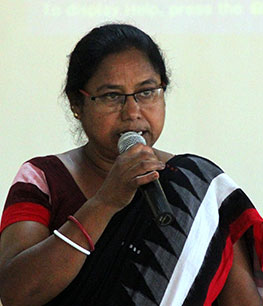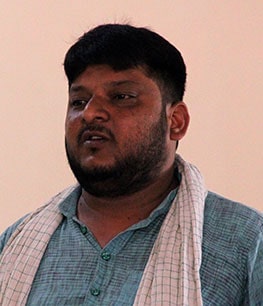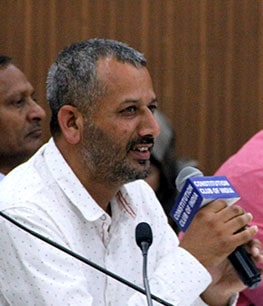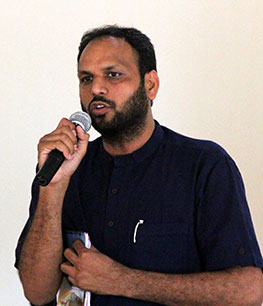Rajim Ketwas
Rajim Ketwas

Work area : Baloda Bazar and Mahasamund districts, Chhattisgarh
At the age of 19, Rajim started grassroots work with Ekta Parishad in undivided Madhya Pradesh. She subsequently joined the workers’ rights movement in Bhilai under the leadership of Shankar Guha Niyogi, founder of the Chhattisgarh Mukti Morcha (CMM). Noticing her extraordinary skills and commitment, she was asked by her leaders to take up mobilisation work, where she covered long-distance on cycles or walking in small groups at night and in difficult conditions to reach distant villages. It was here she started understanding how things were for women, and more specifically the cruel conditions imposed on the lives of Dalit women and Adivasi women through the social structures of caste and patriarchy.
She co-founded Dalit Adivasi Manch which has been working for a dignified life for rural and tribal communities to promote and recognise their rights. The sangathan has taken up many issues – from addressing caste violence to getting recognition of rights in forest areas, organising rescue, relief and support for migrant workers, alongside working with the administration to strengthen efforts related to forest-dwelling communities.
The sangathan sees considerable participation of women and takes up issues of trafficking, sexual violence, domestic labour, work wages, rights of transgender communities, health, and education. She has been strongly involved in the leadership building of sangathan members and has been an effective mentor and trainer on legal provisions.
Rajim has led effective campaigns and action on the issue of violence against women – working with local courts, officials and social organisations to ensure victims and survivors can live a life of dignity and can avail their rights and entitlements. She is also passionate about the goals of equality and justice and believes in sharing these broader goals and values. She is well-known across the state for standing at the forefront against all discrimination and has worked to strengthen the decision-making roles of Gram Sabhas.





